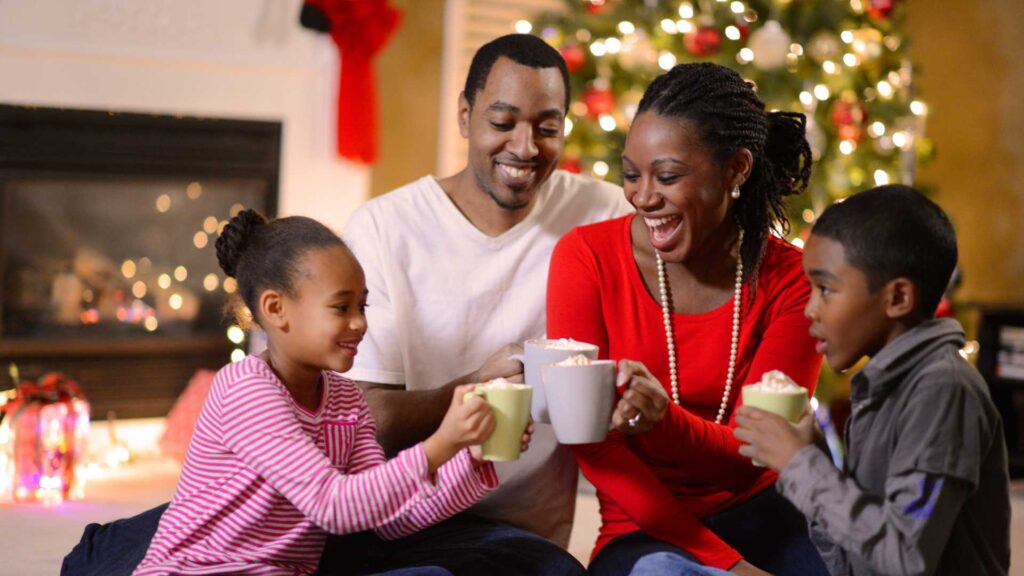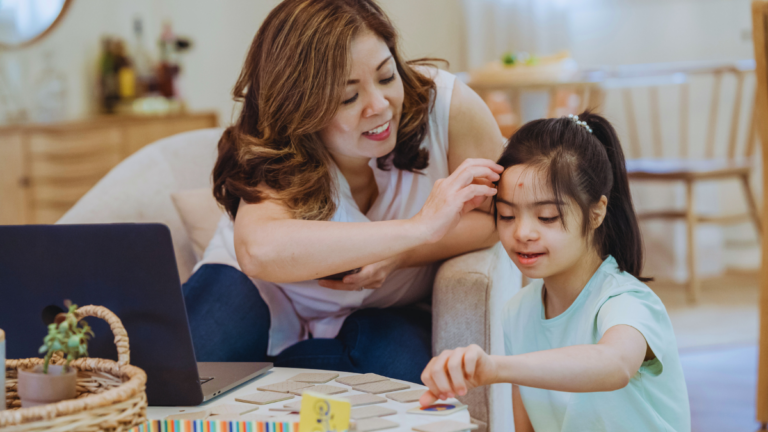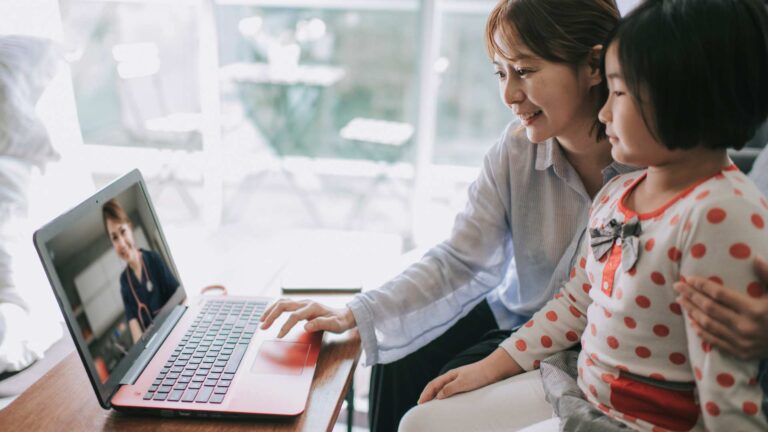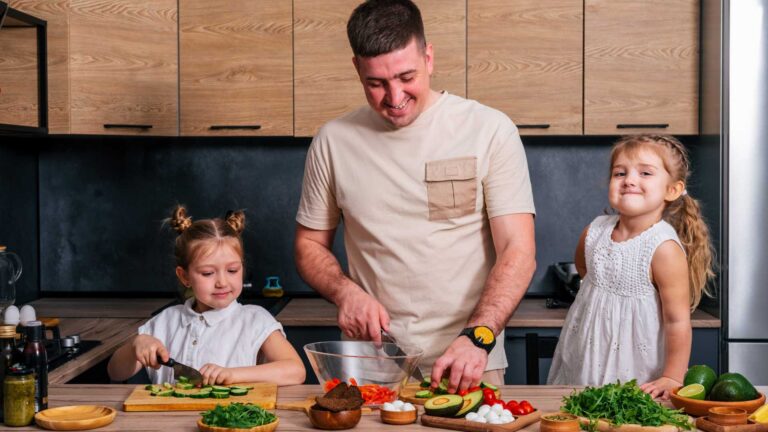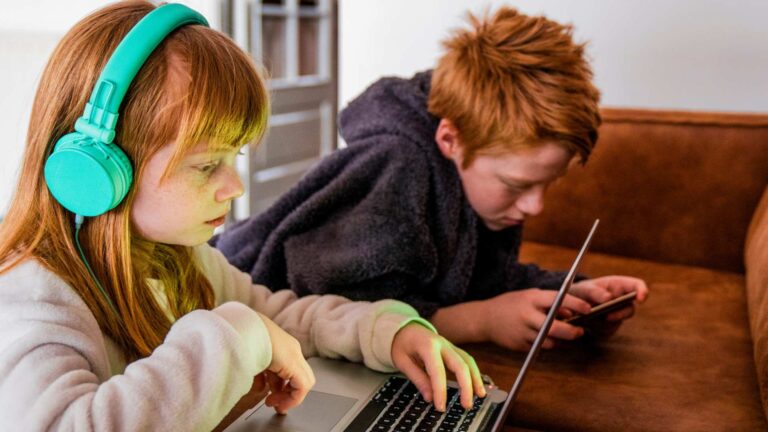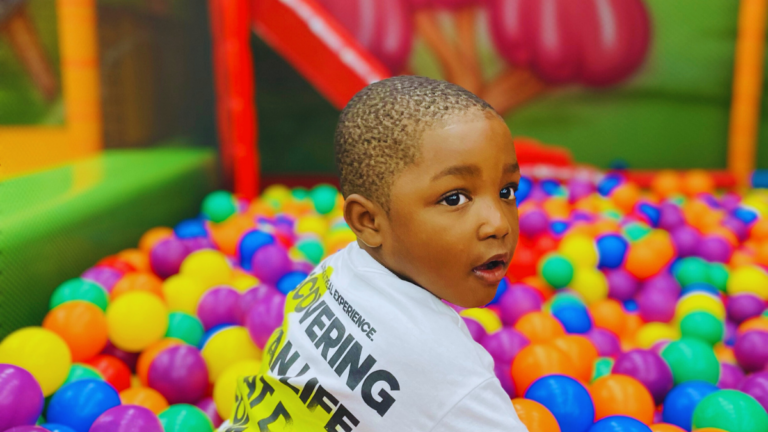How to do Christmas with an autistic child?
Christmas with autism: As we approach one of the most joyous times of the year, the chill of winter begins to settle in Atlanta and Alpharetta. Twinkling lights adorn the streets of Buckhead and Marietta, and if we’re lucky, a blanket of white snow might transform our surroundings into a picturesque fairy tale.
Many of us eagerly anticipate this magical season. The comforting sounds of carols, the warmth of hot chocolate topped with marshmallows, and the joy of family dinners fill our hearts with hope. Moreover, this festive period provides an opportunity to create an inclusive holiday experience that all families, including those with autism, can enjoy.
By planning, we can ensure that Christmas with autism is manageable and enjoyable for all involved. Addressing the unique challenges presented by autism spectrum disorder proactively, we can facilitate an autism-friendly holiday filled with laughter, love, and celebration.
You might be an autism parent, caregiver, or ally wondering, “How to do Christmas with an autistic child?” If so, you’ve come to the right place. Here at ABA Centers of Georgia, we’ve compiled ten expert tips to help you prepare for a joyful Christmas with autism. We aim to take the stress and anxiety out of what should be the most wonderful time of the year.
What Challenges Does Christmas with Autism Present?
Before exploring strategies to create an autism-friendly Christmas, it’s crucial to understand the typical challenges individuals on the spectrum might face during the holiday season. By doing so, we can better consider the factors shaping our celebrations.
- Social and Communication Difficulties: Many individuals with autism often experience distress during festive gatherings as they grapple with understanding traditions, concepts, and social cues. In many instances, neurodiverse individuals prefer familiarity and routine, making adapting to new experiences or breaking from their usual patterns challenging.
- Sensory Sensitivities: As outlined by the CDC, two defining traits of autism are sensory sensitivity and rigidity. Sensory sensitivity means that individuals with autism may struggle to cope with stimuli such as lights, noises, and textures, which are abundant during the holiday season. Consequently, the association between autism and Christmas can be a complex one. Visiting new places teeming with people and lights or even participating in activities like delivering presents can be confusing or unsettling for those with autism spectrum disorder (ASD). Therefore, considering these factors is essential when planning for an autism-friendly Christmas.
10 Tips for Making Autism and Christmas Fun!
- Planning for an Autism-Friendly Holiday: With the holiday season upon us, it takes planning to ensure activities are inclusive for all family members. Resources such as Be Like Buddy offer guides to various autism-friendly activities in cities like Marietta and Atlanta. Additionally, numerous autism blogs share experiences and tips for a smoother Christmas with autism. The goal is to create a fun, engaging, and autism-friendly holiday for everyone.
- Consider Your Child’s Needs for In-Home Visits: The holiday tradition often involves hosting loved ones at home for meals or quality time. When planning a home celebration, consider your child’s preferences—adjust the music volume, choose an appropriate playlist, and include their favorite dishes on the menu. Remember, guests will be entering your child’s safe space. So, explain who’s coming and share a fun fact about each person. Use pictures of the guests to familiarize your child and ease their comfort with the visitors. It’s crucial to inform guests about your child’s communication and interaction preferences—whether they prefer shared activities over hugs, need alone time to recharge, or have dietary restrictions. These considerations will contribute to a more autism-friendly holiday.
- Prepare Your Child for the Festivities: Individuals with autism often struggle to grasp the purpose of traditions and social cues. To help them better understand and enjoy Christmas with autism, consider explaining the holiday’s significance, timing, associated activities, and expectations well in advance. A creatively designed countdown calendar, filled with colors and pictures, could be a fun and engaging tool. Additionally, using social stories and videos to illustrate the various holidays—like Christmas and New Year’s—and their typical celebrations can effectively prepare your child for the upcoming festivities.
- Plan for Challenges During Out-of-Home Celebrations: If your Christmas celebrations involve leaving home, anticipate potential challenges. Sensory overload or fatigue can often occur, so bring tools to help your child regain calm. Noise-canceling headphones, sensory toys, favorite snacks, or an iPad loaded with their favorite movie can assist in managing problematic behaviors. However, it’s crucial not to push too hard; doing so may lead your child to associate holidays with negativity. Learn to recognize boundaries and be prepared to leave earlier if necessary. The most important thing is that you made the effort.
- Utilize ABA Therapy to Prepare Your Child for Christmas with Autism: The bustling schedules and unexpected activities associated with the holidays can impact how a child experiences autism and Christmas. ABA therapy is an excellent resource to help your child adapt to these changes. Request that your child’s therapist incorporate holiday-related lessons into their sessions. Board Certified Behavior Analysts (BCBAs) and Registered Behavior Technicians (RBTs) can facilitate a smoother understanding of Christmas events using literal language, play activities, and art, enhancing your child’s comprehension and reducing anxiety and uncertainty.
- Establish an Autism-Friendly Christmas Environment: You can adapt Christmas decorations to suit your child’s needs on the autism spectrum, making them a delightful aspect of the holiday season. You can create a calming and autism-friendly Christmas atmosphere by choosing visually appealing decorations that neither flicker nor make loud noises. Opting for less stimulating decorations can significantly enhance Christmas with autism, offering a more comfortable yet equally festive environment.
- Establish an Autism Safe Haven: Consider designating a quiet spot where your child can self-regulate during the Christmas festivities. Creating a sanctuary away from noise can be beneficial, whether at home or a relative’s. Navigating unfamiliar environments, crowded spaces, and unexpected sensory experiences can make Christmas with autism quite overwhelming. However, even though such situations may be inevitable, you can minimize stress by establishing a safe corner for your child to retreat to if sensory stimulation becomes too intense. Often, the mere knowledge of having a relaxing and secure space available for breaks can significantly improve the experience of autism and Christmas, as it allows for the recognition of their needs and the opportunity for necessary respites.
- Incorporate an ASD-Friendly Menu: Given that many children with autism can be selective eaters and holidays often center around food, it’s crucial to include your child’s preferred dishes in the meal plan. Whether you’re hosting at home or dining out, ensure their favorite foods are available by bringing them along or requesting their inclusion on the menu. For inspiration, check the recipes by Cooking with Autism.
- Prioritize Self-Care: We understand that caring for a child with autism, particularly during the holidays, can be demanding and stressful. Remember, enjoying the festive season and looking after your needs is essential. Make time for relaxation, establish boundaries, and consider your requirements. Refrain from meeting others’ expectations; if a quiet Christmas at home suits your family best, that’s perfectly okay. Avoiding caregiver burnout contributes to an autism-friendly Christmas.
- Engage Your Child in Christmas Preparations: Activities such as decorating the house, crafting, or watching festive movies are excellent ways to involve your child with autism in Christmas celebrations. Tailor these activities to their interests to facilitate their connection and enthusiasm for the holiday season.
ABA Centers of Georgia: Supporting Families with Autism During the Holidays!
If you’re concerned about navigating the holiday season with your child with autism, we’re here to assist! ABA Centers of Georgia offers Applied Behavior Analysis (ABA) therapy for children and teenagers. Our focus is enhancing their daily experiences, including Christmas and other holidays. ABA therapy serves as a powerful tool for families, managing autism’s complexities by teaching essential skills. These skills instill confidence in individuals with autism, enabling them to thrive in various environments. While Christmas with autism may present unique challenges, proper preparation and expert tips can ensure an autism-friendly holiday season!
Committed to assisting families across Alpharetta, Atlanta, Buckhead, and Marietta navigate neurodiversity, ABA Centers of Georgia is just a call away. Reach us at (855) 929-5058 or contact us online to schedule a free consultation. Let’s work together to create an autism-friendly holiday for your family!

